Vaccinated or unvaccinated? Surprisingly, Ephesians 2:13-17 speaks to the issue. Sort of. In this study of Ephesians 2:13-17, we begin with a question from a reader about COVID vaccinations, and then turn to our ongoing study of Ephesians, where we discover that Jesus actually revealed to us what to do with people who have different views than we do, whether they are religious, political, social, or cultural differences, or even whether they are views about vaccination status. It’s going to be quite the study, so let’s dive in!
We begin with a question from a reader about vaccination.
Question from a Reader
My pastor says that wearing a mask and getting a vaccine is a way to follow the command of Jesus to love my neighbor. I have some serious misgivings about the vaccine, but I want to follow Jesus. What should I do?
I have heard the same arguments and read the same articles. I find the argument unconvincing for several reasons.
Let’s talk about masks first. I am convinced that masks are nothing more than a way for the government to teach us all to be compliant. Why do I say this? It is a scientific fact that masks do absolutely nothing to slow the spread the COVID virus. In fact, they may actually help it spread more. Dr. Fauci said that the typical drugstore mask does nothing to stop the virus from getting out into the air. Thinking that those blue surgical masks that people wear will stop the COVID virus is like thinking that a chain-link fence will stop a mosquito. This is even more true for the cloth masks and bandanas that people make in their home or buy from Amazon, but is even true for the N-95 masks that relatively few people wear.

But even worse is that the masks cause sicknesses and viruses, including COVID, to spread even more. The reason many people use the masks is because they have been told that since doctors and nurses use the surgical masks, they must work. But this is a huge logical fallacy and is scientifically untrue. Doctors and nurses do use surgical masks, but they have been specially trained on how to properly use them.
First, they only wear them in sterile areas where there is a higher concentration of oxygen to help cut down on the spread of viruses and bacteria.
Second, they only don a mask after they have put on sterile surgical gloves.
Third, they never touch their mask after it is on.
Fourth, they never re-use a mask, and will often replace it every 2-6 hours during surgery, because once the mask begins to have moisture build up on it, it becomes worthless.
Fifth, they know that the mask does absolutely nothing to stop the viruses from getting into the air. Surgical masks serve one purpose: to keep droplets of spittle from leaving the mouth and nose and getting into the open body of a surgical patient. Doctors know that viruses will still easily get through the surgical masks and into the air, and so doctors use post-surgical medicines to kill any viruses and bacteria that may have entered into the patient during surgery.
Sixth, because of all these things, if a doctor has any symptoms of any sort of sickness at all, the doctor will not operate on a patient. Why? Because masks do nothing to stop the spread of germs and viruses.
How much of this is true for the average person wearing a mask today? None of it. In fact, quite the opposite is true. People toss their masks onto counters and tabletops. They re-use masks. They stuff the masks into their pockets. They fiddle and re-adjust their masks hundreds of times each day. They wear their masks over and over again. As a result, these masks becomes absolutely filled with germs and bacteria, which causes more harm and damage to themselves, and to others they are around.
I went to a Subway sandwiches the other day, and the lady behind the counter making my sandwich touched her mask every 5-10 seconds during the three minutes she was making my sandwich. She might as well have just spit on my sandwich. But this behavior is normal for mask wearers. People walk up and down food aisles at Walmart touching their masks and then touching the macaroni or the apples or whatever they are buying, spreading germs around with every touch. The same is true with the checkout lanes. The plexiglass barrier is there between you and the checker, but what does that matter when the employee touches their germ-filled mask and then also touches all the food you are buying.
Besides the fact that the person wearing the masks is spending all day sucking in the germs, bacteria, and viruses that are breeding and growing on their mask all day. The mask is unhealthy for them as well. Which is partly why the places in the country and the world that have the highest percentage of people wearing masks also have the highest number of people getting sick. The masks don’t stop the virus; they spread it.
So would Jesus wear a mask? No, He would not. Nor would He put a guilt trip on people for not wearing a mask. He would not say “Wear a mask if you want to love your brother.” Jesus would know that the reason the government is trying to force everyone to wear a mask is because the government wants us afraid and compliant. The government wants us to submit so that they can control us. In Jesus’ day, the Roman government tried to get people to be compliant by forcing them to swear featly to Rome and declare that Caesar is Lord, that Caesar would protect them and provide for them. Jesus and all the apostles disagreed with this. The rallying cry of the early church was “Jesus is Lord,” implying that “Caesar is not.”
Today, masks are nothing more than a sign of submission to the government. They are equivalent to bowing down to Caesar and swearing fealty to Rome. So would Jesus tell us to wear a mask? No. Because Jesus alone is Lord; Caesar, or Biden, is not.
The vaccine mandate is nearly identical. The masks were the first step in getting everyone to comply and submit. The vaccine is the second step. Remember, early on, when Trump was president, all the Democrats, including Biden and Fauci, said that it would be wrong and unconstitutional for the government to force anyone to take the vaccine. And you know for a fact that if Trump was in office right now, and if he had issued a vaccine mandate, all the Democrats would be rioting and resisting such a mandate right now. But since the mandate came from Biden, they are complying.
But what about this claim that Jesus wants us to take the vaccine? Is this a way we can love our neighbor? No. For numerous reasons I disagree with this position.
The way these Christian leaders and pastors promote the vaccine is quite ironic. They first claim that Jesus wants us to take the vaccine, and then they issue a challenge to anyone who doesn’t want to take the vaccine to provide proof from Scripture that the vaccine is immoral or wrong. I read one article from a prominent Christian leader who essentially said, “Jesus wants you to get vaccinated, and if you disagree, I challenge you to find one verse in the Bible that says you shouldn’t.” He went on to say that anyone who claims religious exemption from vaccination is adding to the Word of God because the Bible never says that vaccinations are wrong.

Well, now, wait a second. I challenge this pastor to find one verse in the Bible that says we should get vaccinated. It doesn’t exist, because vaccines didn’t exist back then. So when he writes that Jesus wants us to get vaccinated, he himself is adding to Scripture.
But what about this claim that getting vaccinated in a way to love our neighbors?
Well, first, let’s be clear about what Jesus said. He didn’t say “Love your neighbor.” He said, “Love your neighbor as yourself” (Matt 22:39; Mark 12:31; Lev 19:18). So the ways in which we are supposed to love our neighbor are identical to the ways in which we love and take care of ourselves. The people who refuse to take the vaccine are convinced that the vaccine is bad for them. For a variety of moral, religious, ethical, political, scientific, spiritual, and personal reasons, they believe it would be personally harmful if they took the vaccine. In other words, one of the ways they love themselves is by not taking the vaccine.
So if Jesus says, “Love your neighbor as yourself” and Christians who refuse the vaccine do so as a form of loving themselves, then taking the vaccine would also not be a way to love others, but would actually be a way of harming others. They refuse the vaccine out of an act of love for others.
If you received the vaccine, this might sound ridiculous, but it is true. I know it is true because I am someone who has not been vaccinated. I have refused the vaccine for a wide variety of moral, ethical, scientific, religious, political, and spiritual reasons. And I personally believe that getting the vaccine would be an act of hate against my own body, which is the temple of the Holy Spirit, and an act of hate against worldwide humanity for me to get the vaccine. For me, refusing the vaccine is one way I seek to follow the command of Jesus to love my neighbor as myself.
And I know there may be a cost to this, as there always is with following Jesus. My place of employment is mandating the vaccine. I filed a religious exemption, but so far, it has not been approved. It may be that I will lose my job because of my conviction about what Jesus wants me to do. If that were to happen, I don’t know what will happen to myself or to my family. But it is a step I must take if I am going to stay true to my beliefs and my convictions.
Which raises the issue of the current situation where the government and corporations are firing people from their jobs for not getting vaccinated. Is this loving? Is it loving to stop people from being able to provide for themselves and their family? If the pro-vax Christian leaders are so concerned with loving their neighbors, they should be the first to stand up against terminating the employment of people who don’t get vaccinated. But they don’t. I have not yet heard a single pro-vax Christian leader stand against these moves by the government and various corporations to terminate the employment of people who don’t want to get vaccinated.
So much for loving others as themselves…
That was a long answer to a short questions.
By way of summary, here is my position: If you believe getting vaccinated is the right thing to do for yourself, then go ahead and get vaccinated. But at the same time, don’t try to put guilt trips on people who don’t want to get vaccinated. They are following their own God-given conscience for what they believe is the right thing to do. Don’t force people to eat meat sacrificed to idols.
Similarly, if you believe it is immoral or unhealthy to get vaccinated, don’t condemn or put guilt-trips on those who want to get vaccinated. They have their reasons for wanting to get vaccinated. They are not going to go to hell or lose their eternal life because they were vaccinated, and it is wrong to say so. Stay true to what you believe God has called you to do. To our own master, we stand or fall.
In either case, stand up for the rights of your brothers and sisters to make the choice that their research and conscience has led them to make, and stand up for their rights to keep their jobs, and live and function in society with everyone else. We truly are all in this together, and the most important thing through this all is that we all continue to protect the rights and freedoms and humanity of all people, regardless of what position they take on vaccines and masks. Don’t let the government divide us, as they are seeking to do.
To see what a Jewish Rabbi thinks of the vaccines, see this list of “31 Reasons Why I Won’t Take the Vaccine,” written by Rabbi Chananya Weissman.
Believe it or not, all of this fits right in with what we are studying today in Ephesians 2:13-17.
Ephesians 2:13-17
As we have seen in our study of Ephesians 2 so far, the chapter is all about how to end the hostility and violence that exists between various people groups in the world.
Paul described the problem of this hostility and enmity in Ephesians 2:1-3. He then explained the solution to the problem in Ephesians 2:4-10, by showing what Jesus did about it. Now, in Ephesians 2:11-22, Paul is showing us how we should live in this world now to bring the peace of Jesus to this world.
I want to look at Ephesians 2:13-17 today. This is a much longer section than I usually deal with in these studies, but I couldn’t break up the text into smaller units because it is all part of one whole thought. The following outline shows why:
A: What God Has Done: The Far brought Near (Ephesians 2:13)
B: Christ is Our Peace (Ephesians 2:14)
1: enmity (Ephesians 2:15)
2: in Himself (Ephesians 2:15)
3: two into one (v. 15)
B’: Christ Makes Peace (Ephesians 2:15)
3’: two into one (Ephesians 2:16)
2’: through the cross (Ephesians 2:16)
1’: enmity (Ephesians 2:16)
B”: Christ Proclaims Peace (Ephesians 2:17)
A’: What God Has Done: The Far brought Near (Ephesians 2:17)
I provided a longer explanation of this text in a sermon I preached several years back, and you can read the full manuscript here, so in this study, let me simply try to provide a summary of what these verses mean and how they can be applied to us today.
In Ephesians 2, Paul is primarily writing about the division and strife that existed between Jews and Gentiles in his day.
Now this division wasn’t just a racial division. It was also religious, political, and cultural. It would be like today, if you took the divisions that existed between different racial groups and combined it with the political divisions between conservatives and liberals, the religious differences between Christians and Muslims, and the cultural divisions between city dwellers and country farmers. And since we just talked about it, throw in the strife that currently exists between the vaccinated and unvaccinated. All of this combined is somewhat similar to the strife and enmity that existed in the days of Paul between Jews and Gentiles.
In Ephesians 2:13-17, Paul looks at these two groups of people and says, “Jesus wants you to live in peace with each other.”
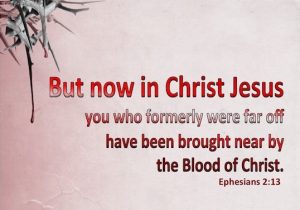
Ephesians 2:13. But now in Christ Jesus you who once were far off have been brought near by the blood of Christ.
Paul writes that those who were once far off have been brought near. The far have been brought near.
What does it mean to be far off? Paul explained this in Ephesians 2:11-12 which we studied previously. Remember, Paul listed six ways in which they were far off. They were without respect, without Christ, without citizenship, without covenants, without hope and without God. As unbelieving Gentiles, they were far off.
A rabbinic writer tells of an incident that explains the common Jewish attitude toward Gentiles. He mentions that when Gentiles converted to Judaism, as they sometimes did, it was called “being brought near.” A certain Gentile woman came to Rabbi Eleazar, confessed that she was sinful, and told him that she wanted to become righteous. She wanted to be accepted into the Jewish faith because she had heard that the Jews were near to God. The rabbi is said to have responded, “No. You cannot come near,” and then shut the door in her face.
 That is the way it used to be. But now, Paul says in Ephesians 2:13, in Christ Jesus, the Ephesian Gentiles, who were far off have been brought near.
That is the way it used to be. But now, Paul says in Ephesians 2:13, in Christ Jesus, the Ephesian Gentiles, who were far off have been brought near.
And Paul says here that this bringing near was accomplished—not on their own merit, or because some of them were real likable people—no, it was accomplished by the blood of Christ. The sacrifice of Christ by which He gave up His life for others. It is by the blood of Christ that those who were far off have been brought near. And Paul doesn’t say here exactly what it means to be brought near, but we can assume that it means basically the opposite of what it means to be far off. Being brought near is the opposite of the six things listed in Ephesians 2:11-12.
Right now, Paul just wants to tell us how Jesus Christ brought us near.
Ephesians 2:14. For He Himself is our peace, who has made both one, and has broken down the middle wall of separation,
He Himself is our peace. The only way people can be at genuine peace with each other is in Christ. Paul’s choice of terms here is interesting as well. There is, in the Greek, a term for peacemaker, but Paul did not use it here. Jesus Christ did not come to bring peace and then to retire to the sidelines as a peacemaker does. He came to be our peace.
Paul says in the last part of Ephesians 2:14 that Jesus Christ has broken down the middle (or dividing) wall of separation.
This term is a reference to the temple at the time of Paul. There was, in the temple, an outer court called “The Court of the Gentiles.” It was as far into the Temple as the Jews would allow Gentiles to come. They could go no further. The Court of the Gentiles and the rest of the temple was divided by a middle wall of separation.
Archeologists have discovered an inscription from the temple at the time of Paul which was put between the court of the Jews and the court of the Gentiles, and it said this: “No foreigner may enter within this barricade which surrounds the sanctuary and enclosure. Anyone who is caught doing so will have himself to blame for his ensuing death.”
“God had originally separated Jews from Gentiles (cf. Isa 5:1-7; Matt 21:33) for the purpose of redeeming both groups, not for saving the Jews alone. He placed the Court of the Gentiles in the Temple for the very purpose of winning Gentiles to Himself. It was meant to be a place for Jewish evangelism of Gentiles, a place for winning proselytes to Judaism and of thereby bringing them “near.” It was that court, however, that the Jewish leaders of Jesus’ day used as “a robbers’ den” (Mark 11:17) rather than as a place of witness.” It was not being used as God intended. There was this middle or dividing wall of separation.
Paul uses this as a symbol for the racial hatred and hostility that many Israelites have for Gentiles, and many Gentiles have for Israelites. It is a wall between the two.
In fact, Paul had firsthand experience with this dividing wall of hostility. In Acts 21, this is the exact reason he was arrested in the first place. He was falsely accused of taking Trophimus, a Gentile from the city of Ephesus, past this barrier. This is probably why Paul mentions this barrier in his letter to the Ephesians, because they know that this is why he was arrested and is now in prison.
 But, Paul says Jesus Christ has torn this wall down. Just like when He died on the cross, the veil in the temple was torn from top to bottom, showing that the dividing wall between God and man had been breached, Jesus Christ has also made it possible for all to come before God—Jew and Gentile alike. Christ is Our Peace.
But, Paul says Jesus Christ has torn this wall down. Just like when He died on the cross, the veil in the temple was torn from top to bottom, showing that the dividing wall between God and man had been breached, Jesus Christ has also made it possible for all to come before God—Jew and Gentile alike. Christ is Our Peace.
Ephesians 2:15 tells us how Jesus Christ accomplished this.
Ephesians 2:15. having abolished in His flesh the enmity, that is, the law of commandments contained in ordinances, so as to create in Himself one new man from the two, thus making peace,
Ephesians 2:15 contains the next four key lines. The first is the word enmity. Christ, when he came, abolished in His flesh the enmity that existed between Jews and Gentiles.
You might say, “Where did this enmity come from?” Well, look in the verse. It tells us that the enmity rose from the law of commandments contained in ordinances. In other words, much of the malice that is between Jews and Gentiles is a result of the Jewish law. We have seen previously that the law contained over 6000 rules and commands.
Among these, were laws stating that the Jew was to have nothing to do with Gentiles, was not to associate with them, or get involved in any of their practices. Needless to say, this created strife and division between Jews and Gentiles.
But Paul says here that Jesus abolished all of this enmity that was created by the law. Maybe some of recall Matthew 5:17 where Jesus says He did not come to abolish the law. How does that fit with what Paul says here?
The answer is found by carefully understanding what Paul says in Ephesians 2:14. According to Ephesians 2:14, Jesus did not come to abolish the law, but to abolish the enmity that existed because of the law—the enmity created by the law.
In Matthew 5:17, Jesus did this by completely fulfilling the law. He is superior to the law, and proved it by fulfilling the law. This is exactly what Paul goes on to write. He says that Jesus created peace in Himself by fulfilling the law.
Jesus abolished the enmity that was created by the law. The law set up a system of rules and regulations which allowed people to feel superior than others and more righteous. Though the purpose of the law was love, most people used the law to judge, condemn, and accuse. So the law ended up causing the exact opposite of what it was intended for. It was used for hate instead of love. It created enmity instead of unity.
And this is what too much of an emphasis on the law does for people, even today. Those who are most zealous for their religious laws and commandments end up hating, judging, accusing, and condemning those who are not as zealous. A religious focus on law causes those who obey the law to look down their noses with scorn and division at those who do not obey it.
To see how this works, just look at the vaccination mandate of today. Look at the judgment, condemnation, and hatred that it breeds. Each side views the other as morally inferior. Each side condemns the other. This is what laws do. All laws are the opposite of love, and only create division and strife.
So Jesus came, says Paul, to do away with this enmity caused by the law, and in this way, bring together those who had been separated by the law. This is what Paul explains next in Ephesians 2:15. Jesus abolished the enmity of the law to make one new man from the two. He made the two into one. He made the Jew and the Gentile into one body—the body of Christ. Marriage is a wonderful picture of this—when the two become one flesh. Paul picks up on this picture later in Ephesians 5. We will deal with it then.
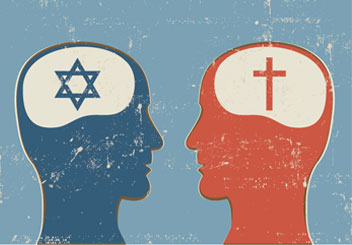 As you can see, peace is the central idea of Paul’s thought pattern here. Christ Makes Peace. Christ is our peace by abolishing the enmity in Himself and making the two into one. In this way, Christ makes Peace.
As you can see, peace is the central idea of Paul’s thought pattern here. Christ Makes Peace. Christ is our peace by abolishing the enmity in Himself and making the two into one. In this way, Christ makes Peace.
Now, the rest of this paragraph, as found in Ephesians 2:16-17, simply repeats in reverse order what Paul has already written. He began with talking about the peace of Christ, has worked his way into the central point, which is the peace of Christ, and now will work his way back out by repeating what he said, until we arrive finally, at the end, to the peace of Christ.
Ephesians 2:16. and that He might reconcile them both to God in one body through the cross, thereby putting to death the enmity.
Ephesians 2:16 contains much of what Paul already wrote. Paul says that He might reconcile them both to God in one body. This is a repeat of the earlier statement that Jesus made the two into one, that He reconciled both to God in one body. It is the same idea, just phrased a bit differently.
And notice the minor difference—how Paul elaborates on what he said before. The goal was not just to have these two bodies be reconciled to each other, but to reconcile them both to God. The differences we have with each other cannot be worked out if we just sit down and talk them over. The differences we have with each other can only be reconciled with each other if we are first reconciled to God.
 Second, Jesus Christ did this through the cross. In Ephesians 2:15, Christ did it in Himself, here Paul repeats himself again, but elaborates as well. It was not just in Himself, it was specifically in what He did on the cross.
Second, Jesus Christ did this through the cross. In Ephesians 2:15, Christ did it in Himself, here Paul repeats himself again, but elaborates as well. It was not just in Himself, it was specifically in what He did on the cross.
Jesus Christ accomplished this through His death on the cross. On the cross, Jesus revealed what we humans have been doing from the beginning of time. Jesus went to the cross because the people who crucified Him thought that He was a blasphemer and sinner. They thought that He broke God’s law, profaned the religious temple, and undermined the priestly authority and the sacrificial system. So they looked down their religious noses at Jesus, and killed Him in God’s name.
But then, rather than retaliate from the cross, what did Jesus do? He asked God to forgive those who crucified Him (Luke 23:34). On the cross, Jesus revealed how to create peace where there is only enmity, blame, accusation, and strife. The way to peace, Jesus revealed, is to forgive. This is what Jesus did on the cross, and what He revealed to us through His death and resurrection, and is how He now calls us to live our lives as His followers.
This is the last idea in Ephesians 2:16, and a repeat of the point in Ephesians 2:15. There, Paul began by talking about the enmity that existed, and here in Ephesians 2:16, Paul concludes by talking about the enmity which was put to death in Jesus Christ on the cross. He showed us the way to peace and calls us to live in this way.
Ephesians 2:17 summarizes the entire message, much as Ephesians 2:13 did, by repeating the fact that Jesus brought peace.
Ephesians 2:17. And He came and preached peace to you who were afar off and to those who were near.
Christ came and preached peace. This is what Christ came preaching, isn’t it? By the way, this is a fulfillment of Isaiah 57:19, which says that the Lord will say “Peace, peace to those far and near.” (cf. also, Isa 9:6; 52:7; Mic 5:5; Zech 9:9-10).
What were the first words of the angels when they appeared in the hills proclaiming Christ’s birth? Luke 2:13-14 says, “And suddenly there was with the angel a multitude of the heavenly host praising God, and saying, “Glory to God in the highest, and on earth peace, good will toward men.”
What did Jesus tell his troubled disciples in John 14:27? “Peace I leave with you; my peace I give you.”
Christ came preaching peace—a peace such as the world had never seen. Peace.
At the end of Ephesians 2:17, Paul ends with what he started with: what God has done, he has brought peace to those who were afar off and to those who were near.
In Ephesians 2:11-12, we learned that our relationships are in shambles; we are at each other’s throats; we can’t get along; we are at animosity with each other.
The passage before us in the solution to this problem. And Paul has so arranged it so that we cannot miss it. What has God done for us? He has brought peace, Peace, PEACE!
From this passage it is clear what Paul is saying. We, who used to live at enmity with each other, and used to judge each other by our own moral standards and laws of conduct, we—whether we were far off from God or near to God, we can all, in Jesus Christ and through what He has done on the cross, we can live at peace with each other.
Why? Because we are no longer separated. In Christ, we have become one body. One flesh. One.
So, when members of Christ’s body fight among themselves, we are really only hurting ourselves. We are gouging our own eye. We are cutting off our own hands. We are shooting ourselves in our own foot (1 Cor 12:14ff).
I read a review of a move called “The Fight Club” recently. The movie came out a few years back. Apparently, it is a story of two men who decide that to become real men, they need to show it through aggression. So they start a club where men can come and fight each other—hence the name of the movie “The Fight Club.”
When they first come up with this idea, they are in a bar, so they decide to start right away, and they go out into the parking lot to fight each other. As they do, a crowd gathers and watches in utter amazement, not trying to stop the fight.
The end of the movie reveals that the two men are really just the two different personalities of a single schizophrenic man who somehow is able to be both personalities at once. And the movie does a flashback to that first fight in the parking lot of the bar to look at it through the eyes of the crowd.
To them, it is a comical yet confusing scene. From the crowd’s perspective, they see one man beating himself up. He’s throwing himself into cars, and punching himself in the face, and knocking himself to the ground. Somehow, he’s able to bite and kick himself. It is not a pretty sight seeing a man beat himself up.
But that is how much of the world views the church. Here we are, the body of Christ, we are supposed to be loving and unified. We are supposed to be living in the peace that Christ has provided and that the whole world wants. We are supposed to protect each other as we protect our own bodies.
But instead, we spend much of the time beating ourselves up just like that man in the movie. We have racial differences. We have political differences. We have class differences. We have theological differences. And if we let ourselves focus on these differences, we would spend all of our time beating each other up.
In fact, I came across this humorous fictional story recently:
I was walking across a bridge recently and spied a fellow who looked like he was going to commit suicide by jumping off. So, I thought I would try and stall him until the authorities showed up. “Don’t jump!” I yelled.
“Why not?” he asked. “Nobody loves me.”
“God loves you,” I said. “You believe in God, don’t you?”
“Yes, I believe in God,” he said.
“Good, Are you Christian, Jewish or Muslim?” I said.
“Christian,” he said.
“Me too! Protestant or Catholic?”
“Neither,” he said.
“What then?” I asked.
“Baptist,” he said.
“Me too!” I said. “Independent Baptist or Southern Baptist?”
“Independent Baptist,” he said.
“Me too!” I said. “New Evangelical/Moderate Independent Baptist or Conservative Independent Baptist?”
“Conservative Independent Baptist,” he said.
“Me too!” I said. “Calvinistic Conservative Independent Baptist or Lose-Your-Salvation Arminian Conservative Independent Baptist?”
“Calvinistic Conservative Independent Baptist,” he said.
“Me too!” I said. “Dispensational Premillennial Calvinistic Conservative Independent Baptist or Historical Premillennial Calvinistic Conservative Independent Baptist?”
“Dispensational Premillennial Calvinistic Conservative Independent Baptist,” he said.
“Me too!” I said. “Against Women in Ministry Dispensational Premillennial Calvinistic Conservative Independent Baptist or For Women in Ministry Dispensational Premillennial Calvinistic Conservative Independent Baptist?”
“Against Women in Ministry Dispensational Premillennial Calvinistic Conservative Independent Baptist,” he said.
“Me too!” I said. “Unashamed Fundamentalist Against Women in Ministry Dispensational Premillennial Calvinistic Conservative Independent Baptist or Strict Separation of Church and State Against Women in Ministry Dispensational Premillennial Calvinistic Conservative Independent Baptist?”
“Unashamed Fundamentalist Against Women in Ministry Dispensational Premillennial Calvinistic Conservative Independent Baptist,” he said.
“Me too!” I said. “Pro-Disney Boycott Pro-Life Unashamed Fundamentalist Against Women in Ministry Dispensational Premillennial Calvinistic Conservative Independent Baptist or Anti-Disney Boycott Pro-Choice Unashamed Fundamentalist Against Women in Ministry Dispensational Premillennial Calvinistic Conservative Independent Baptist?”
“Pro-Disney Boycott Pro-Life Unashamed Fundamentalist Against Women in Ministry Dispensational Premillennial Calvinistic Conservative Independent Baptist,” he said.
“Me too!” I said. “King James Version only Pro-Disney Boycott Pro-Life Unashamed Fundamentalist Against Women in Ministry Dispensational Premillennial Calvinistic Conservative Independent Baptist or Modern Versions Pro-Disney Boycott Pro-Life Unashamed Fundamentalist Against Women in Ministry Dispensational Premillennial Calvinistic Conservative Independent Baptist?”
“MODERN VERSIONS Pro-Disney Boycott Pro-Life Unashamed Fundamentalist Against Women in Ministry Dispensational Premillennial Calvinistic Conservative Independent Baptist,” he said.
“Aaauuugghh!! You heretic!” I said. And I pushed him over.
It’s an old joke. If I were re-writing it today, I would include vaccinated or un-vaccinated into the mix.
And it’s a humorous story. But in many aspects, it is sadly true. There is probably not one Christian on the face of this earth that agrees 100% with all the beliefs of any other Christian. The truth of the matter is that if we dig deep enough, we will always find areas in which we disagree with each other. And if we let these disagreements separate us, we will be forever pushing each other off bridges, and dividing churches, and arguing with each other. Which is exactly what Satan wants, and what Jesus does not want.
Jesus wants us to live in peace with each other. This does not happen by forcing us all to live and act and believe the same thing, but by helping us learn to love each other and get along with each despite of our many differences.
How does peace occur? Jesus brings peace when we forget about what it between us, and focus instead on Who is Above Us—as Ephesians 2:13-17 encourages us to do. Peace occurs when we focus not on ourselves, but turn our eyes upon him,– all of these other things just fade into the background and it is then that we can live in peace with each other. Peace, that is what Jesus brought. Peace is what we can have … in Jesus Christ.




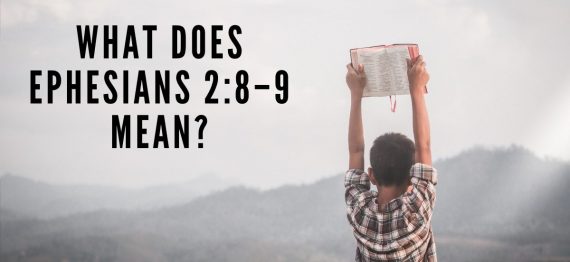
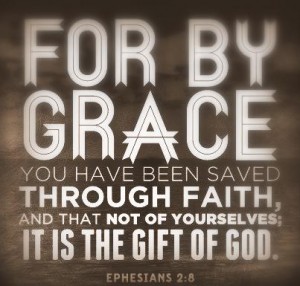 There is also an issue there at the end of the verse about the “gift of God” and what it refers to. What is the gift of God that Paul is referring to? Is it the grace? The faith? the salvation? I have taught about this frequently in the past, so I’m not going to dive deep into the question now. (See these articles:
There is also an issue there at the end of the verse about the “gift of God” and what it refers to. What is the gift of God that Paul is referring to? Is it the grace? The faith? the salvation? I have taught about this frequently in the past, so I’m not going to dive deep into the question now. (See these articles: 

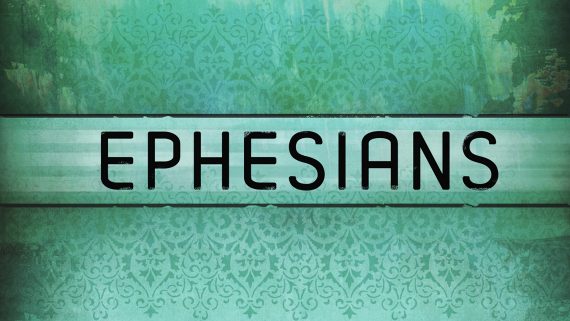
 I went on to argue that the word for “sons” in both “sons of the kingdom” and “sons of wickedness” is better understood as “offspring,” which in the context, would indicate the behavior or results that come from living according to the ideas and teachings of the Kingdom of God vs. the kingdom of darkness.
I went on to argue that the word for “sons” in both “sons of the kingdom” and “sons of wickedness” is better understood as “offspring,” which in the context, would indicate the behavior or results that come from living according to the ideas and teachings of the Kingdom of God vs. the kingdom of darkness.

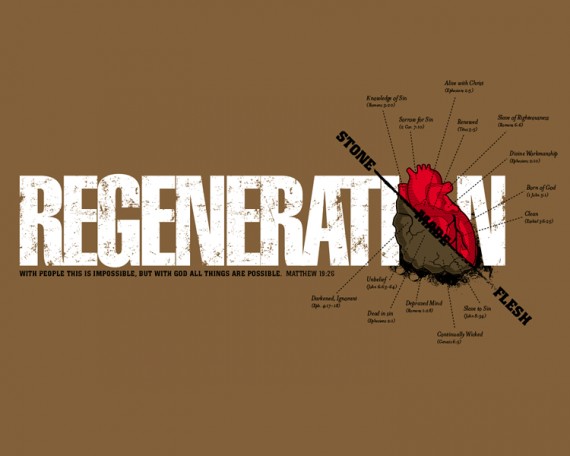

 Paul writes in Ephesians 2:7… That in the ages to come He might show the exceeding riches of His grace in His kindness toward us in Christ Jesus.
Paul writes in Ephesians 2:7… That in the ages to come He might show the exceeding riches of His grace in His kindness toward us in Christ Jesus.

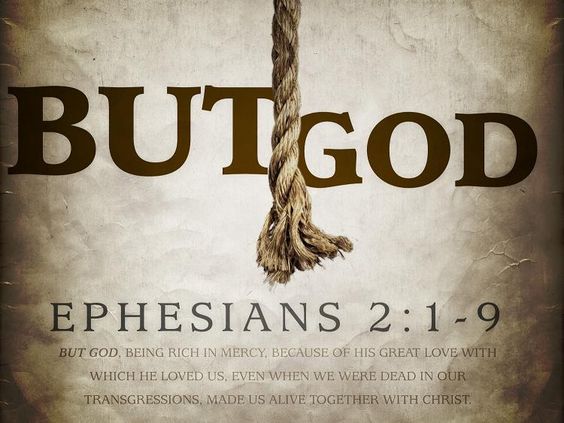
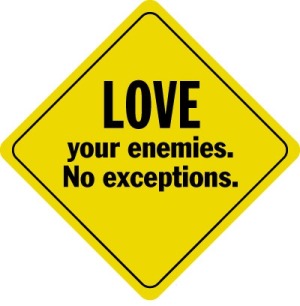 That is the way we all behave almost all of the time. Our actions are justified and righteous, and the actions of those who oppose us are evil and wicked.
That is the way we all behave almost all of the time. Our actions are justified and righteous, and the actions of those who oppose us are evil and wicked.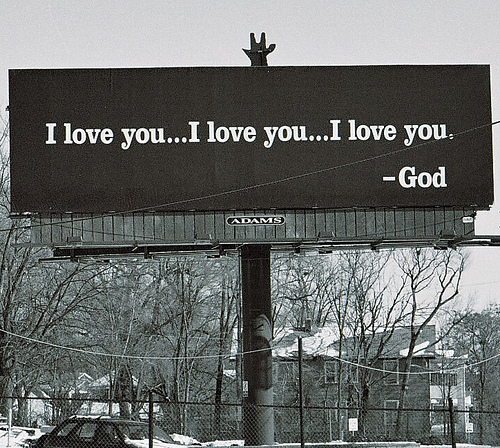
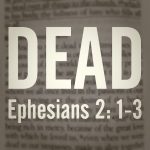
 I recently received this question from Aaron:
I recently received this question from Aaron: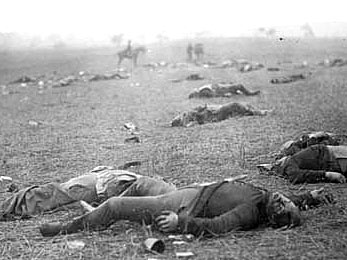 First, truth. Peace does not require truth about our enemies, but truth about ourselves. Finger pointing always leads to war. But it is only we can look at our own face in the mirror that we can own up to our own violence and bring an end to it.
First, truth. Peace does not require truth about our enemies, but truth about ourselves. Finger pointing always leads to war. But it is only we can look at our own face in the mirror that we can own up to our own violence and bring an end to it.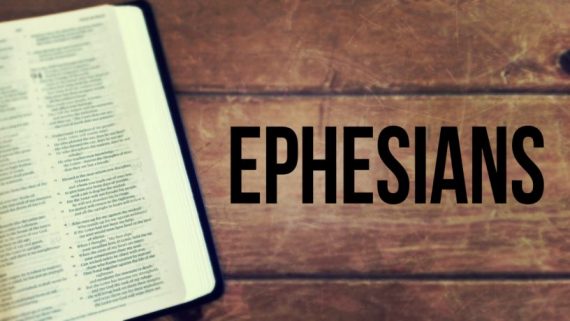
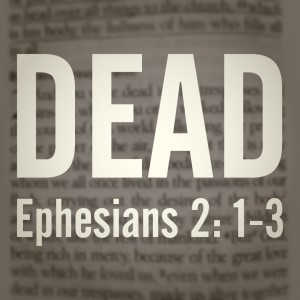 In my online course and my book, I teach that the word “dead” refers to something that is not functioning properly.
In my online course and my book, I teach that the word “dead” refers to something that is not functioning properly.
 Be careful about accusing and condemning others. If you are into politics, it is very easy to start seeing your political opponents as monsters. As less than human. It is easy to start calling them names and wishing for their death. That is the sin Paul has in view here in Ephesians 2:1.
Be careful about accusing and condemning others. If you are into politics, it is very easy to start seeing your political opponents as monsters. As less than human. It is easy to start calling them names and wishing for their death. That is the sin Paul has in view here in Ephesians 2:1.